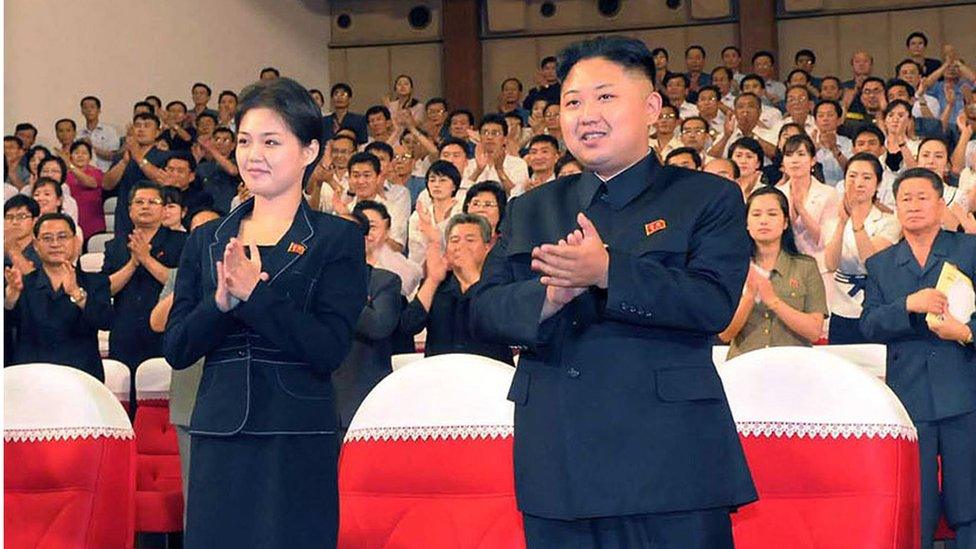North Korea to send orchestra to Winter Olympics
- Published
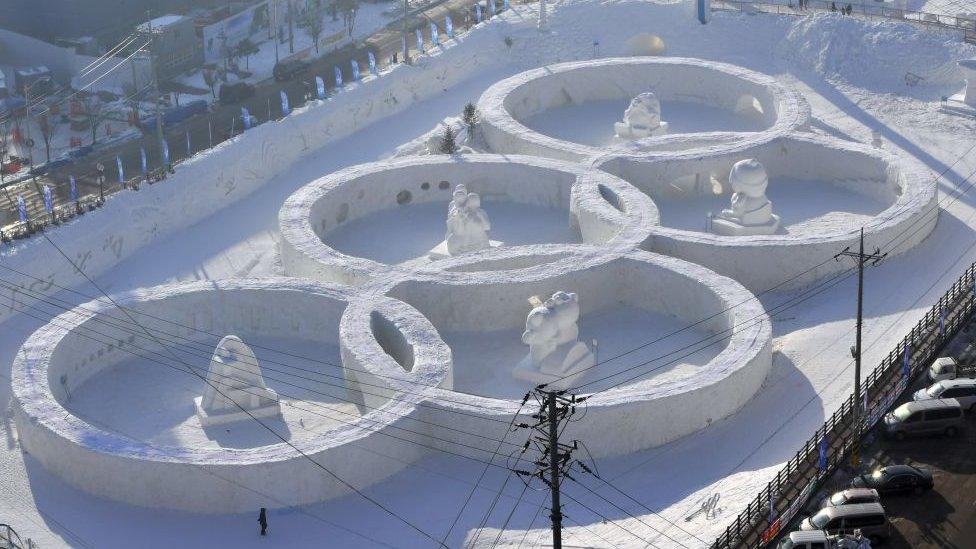
Athletes, cheerleaders and an art troupe are expected to be part of the North's delegation at the Olympics
North Korea has agreed to send a 140-member orchestra to the Winter Olympic Games in South Korea next month.
The two sides are discussing plans for the North's delegation at Panmunjom village in the demilitarised zone (DMZ), also known as the truce village.
North Korea announced last week that it would send a delegation to the Games in the South - easing months of tensions.
Relations have been strained between the two Koreas over the North's missile tests and nuclear programme.
North Korea has participated in several Olympic Games before, but never in South Korea. It boycotted the 1988 Olympic Games in Seoul.
Details of the diplomatically complicated plan are still being ironed out.

Songs of praise
By Kerry Allen, BBC Monitoring
The Samjiyon Band is a long-respected nationalist orchestra that forms part of the Mansudae Art Troupe, a longstanding opera and music group that was founded in 1969.
The group is largely made up of women musicians and most of its members play string instruments. They are known for giving classical song and dance performances and the Korean government says they play an important role in promoting friendship overseas.
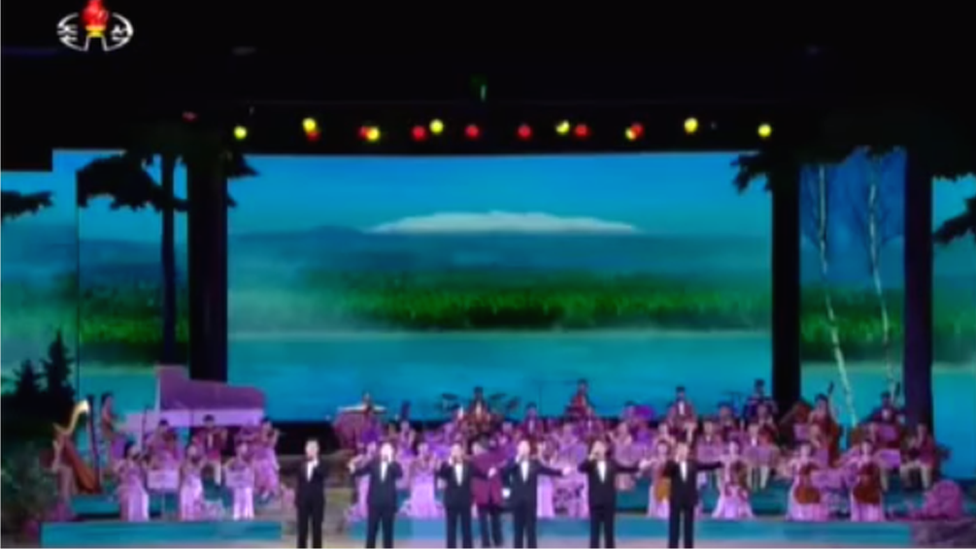
The Samjiyon Band of the Mansudae Art Troupe participate in a Lunar New Year performance
They often perform for officials to mark the start of Lunar New Year, and have given numerous high-level performances at other key events in the last decade, including the three-year anniversary of North Korean leader Kim Jong-un's army in December 2014.
Many of their song lyrics speak of praise for the country's leadership - past and present. In December 2014, state news agency KCNA said "performers expressed boundless reverence for Kim Jong-un" and "represented the high pride and self-esteem of the army and the people of the [Democratic People's Republic of Korea], who are blessed with the illustrious leaders generation after generation".

Monday's talks were thought to be focused on details including the number of performers, their travel route and their schedules, according to South Korea's Yonhap news agency.
Four delegates from each side were expected to attend, with the North's delegation including Hyon Song-wol, the leader of the popular all-female pop group, the Moranbong Band.

Moranbong: Pyongyang's propaganda girl band
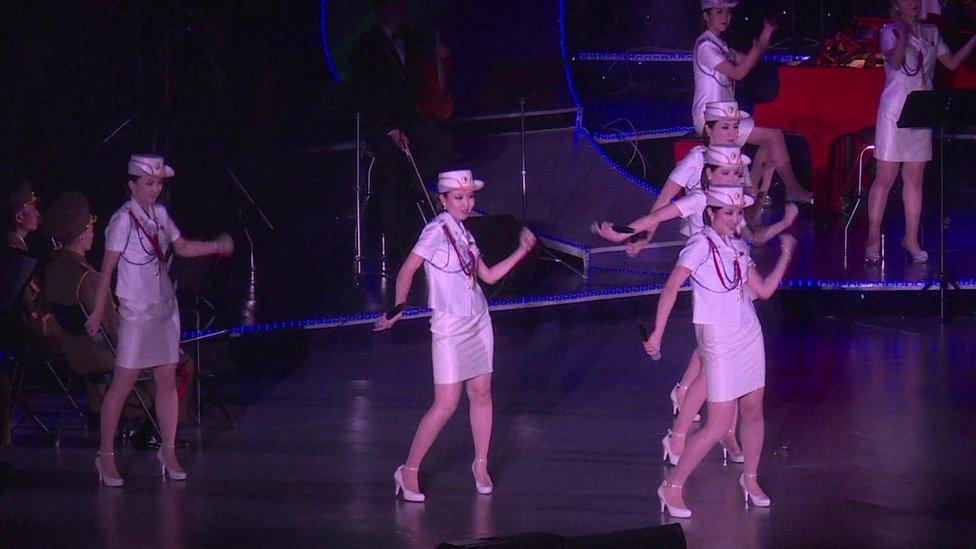
Moranbong during one of their appearances on state TV
Formed in 2012, all band members are reportedly hand-picked by North Korean leader Kim Jong-un himself.
Their music is a synthesiser-heavy mix of Western classics and Pyongyang propaganda songs including "We Call Him Father" - an ode to Mr Kim.
The changing line-up consists of singers and multi-instrumentalists, playing anything from electric guitars to synthesiser, violin and saxophone.
In 2015, the band was wrongly rumoured to have been purged, even executed, when the members vanished from public view for several weeks.

Monday's meeting was for working-level talks - with lower-ranking officials - rather than the breakthrough high-level talks of last week.
At last week's high-level inter-Korean talks, the first in more than two years, Pyongyang said it wanted to send athletes, cheerleaders, an art troupe and a taekwondo team to the Winter Olympics taking place from 9-25 February in Pyeongchang.
On Saturday, both sides will also meet at the International Olympics Committee in Switzerland, to discuss the details of North Korea's involvement.
Only two North Korean athletes currently qualify for the Games - figure skaters Ryom Tae-ok and Kim Ju-sik.
Here's five things you should know about the so-called 'truce zone', Panmunjom
The North's involvement in the Games is seen as a good public relations opportunity for both sides, and a chance to lower geopolitical tensions between the two neighbours.
South Korea has proposed that athletes from both the North and South march jointly together in the opening ceremony. North Korea is said to be "positively" considering this.
The South has also suggested a unified Korean team for the women's hockey tournament.
Unification Minister Cho Myoung-gyon said the North was "expected to respond to the proposal soon".
'Big credit'
The two Koreas are still technically at war, as the 1950-53 Korean War ended in an armistice, not a peace treaty.
Tensions have also been high due to North Korea's frequent ballistic missile tests.
The latest test, on 28 November, sparked a new series of measures from the UN, targeting petrol shipments and travel for North Koreans.
US President Donald Trump and North Korea's Kim Jong-un have also conducted an increasingly bitter feud, with the US leader dubbing Mr Kim "Rocket Man" and both boasting about their nuclear capabilities.
Last week, Pyongyang criticised South Korean leader Moon Jae-in after he said Mr Trump deserved "big credit" for the North-South talks.
It indirectly threatened to pull out of the Olympics, with KCNA saying: "[South Korea] should know that train and bus carrying our delegation to the Olympics are still in Pyongyang."
"The South Korean authorities had better ponder over what unfavourable results may be entailed by their impolite behaviour."
- Published14 January 2018
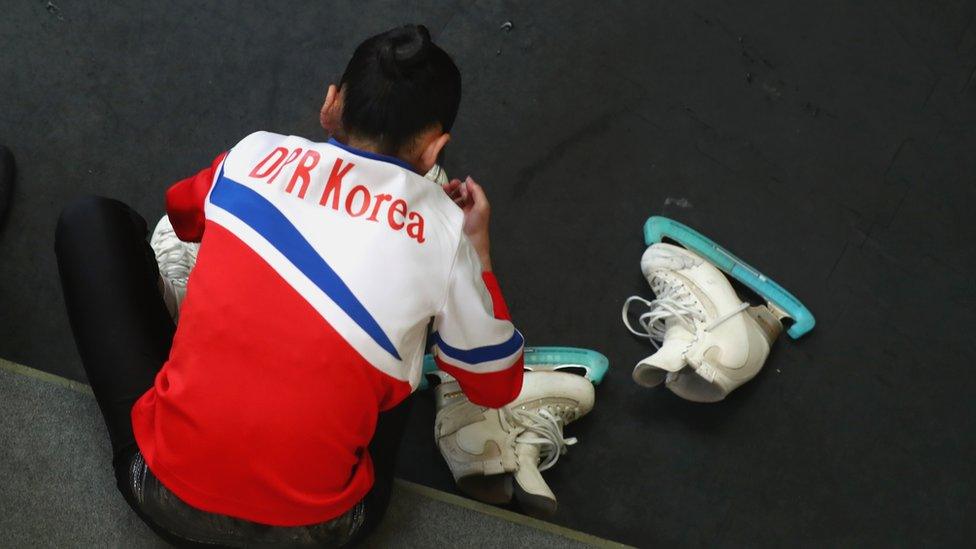
- Published9 January 2018
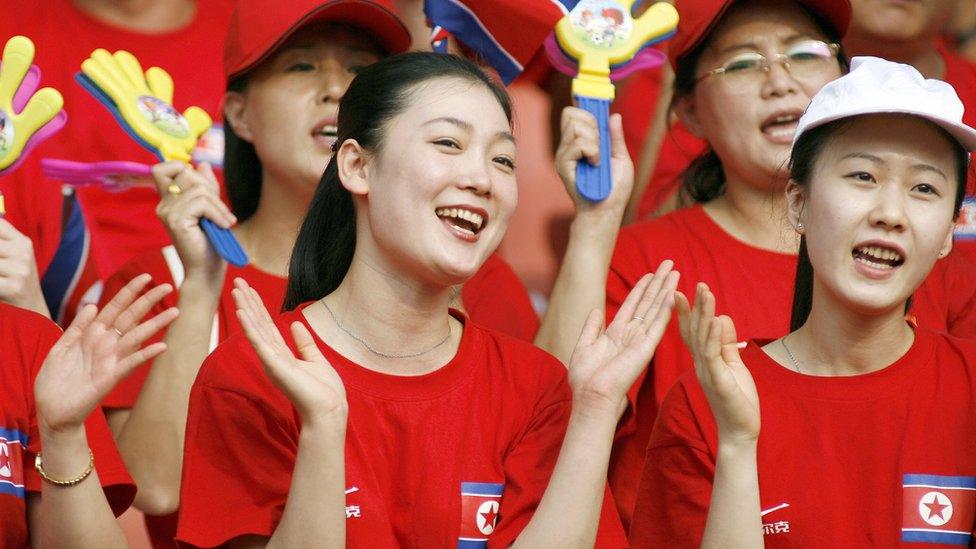
- Published10 January 2018
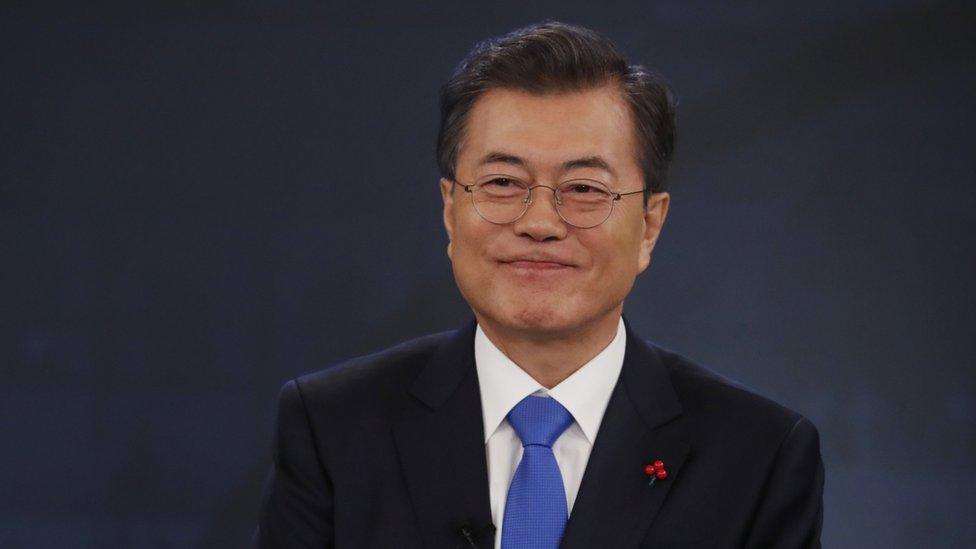
- Published9 September 2015
